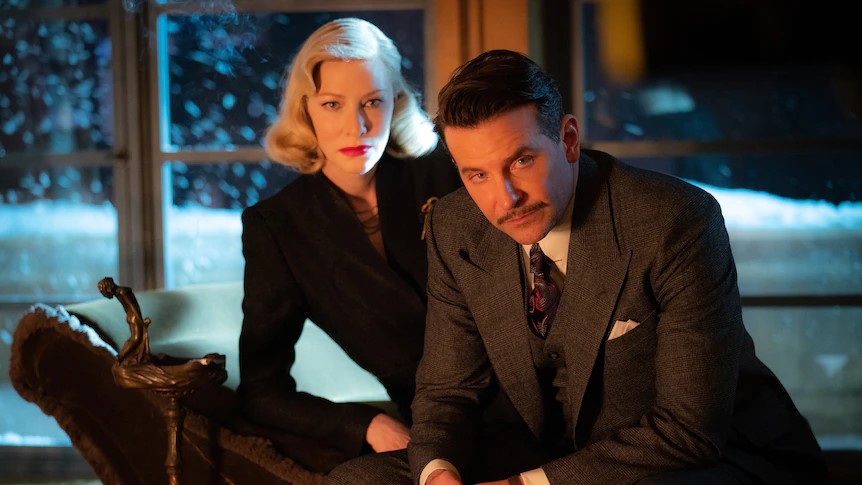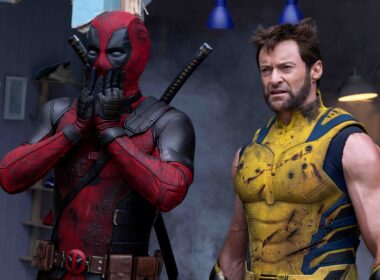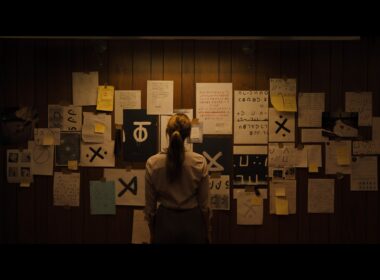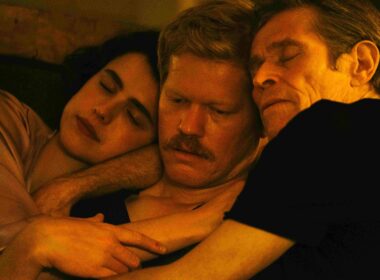Rating: ****
Very few classic genres are as misunderstood as noir. It came to Hollywood with German directors fleeing the Nazi regime, who brought with them that tragic visual intensity of German expressionism, with dramatic black and white contrasts, slanted camera angles and that bleak look.
Noir tiptoes in the underbelly: where the villains have a point, and the heroes are only a step away from falling into vices and temptations. The best thing about film noir is the context, its cynical view that stems from a distrust in human nature, the best kind of crime-pulp. The type that entertains you with punches to your gut.
So why are Guillermo Del Toro, and writing partner Kim Morgan, adapting William Lindsay Gresham’s classic gothic crime novel that was already adapted to film by Edmund Goulding in 1947? Because they picked up this story, so unique to the 1940s, and said yes, it would resonate in 2022. And they’re not wrong.
We follow Stan Carlisle (Bradley Cooper), a man of few words, a tragic past that is not so much as hinted but bludgeoned in our face. We first meet him setting his house on fire and heading off into the distance, with only his hat, jacket, and a little transistor radio. Following a mob of the seemingly destitute, Stan is employed by the owner of a carnival, Clem (Willem Dafoe), to be a handyman for every odd job they need. Clem’s main attraction is the bizarre display of the “geek”, advertised as “half-man, half-animal”, who eats a live chicken for the amusement of a wild crowd. The geek, Clem admits, is just a man they find in the “nightmare alley”, poor souls whose life took a turn and are now willing to succumb to the most humiliating display for a roof over their heads and a hot meal, sometimes. The lesson is direct – one is always one step away from ending up at the bottom of a pit.
With the chance of a new beginning, Stan slowly climbs the social ladder from humble carnival to the glitzy hotel halls of high society. His past rarely comes up with the people he meets, which gives him the chance to change his personality to benefit him most.
With the clairvoyants, Zeena (Toni Collette) and Pete (David Strathairn), Stan learns to read cues and pretend to be a psychic. He charms the beautiful Molly (Rooney Mara) into leaving into the real world with him and tour their mentalist act targeted to New York’s elite, where he meets the appropriately named Lillith (Cate Blanchett), a psychiatrist for the rich.
The closer Stan flies to the sun, the bigger the fall that awaits him. We know it; we can see it from afar. But we also understand why Stan can’t control his impulse to succumb to temptation. Every step he takes seems him breaking away from his self-imposed rules and slowly revert to the self he ran away from. In a final hurrah, Stan tries to pull a trick on Ezra Grindle (Richard Jenkins), a Rockefeller-type millionaire who goes to all lengths to atone for crimes he has committed. Ezra deserves the con the same way that Stan deserves his tragedy, and we can appreciate the demise of the two men destroying each other without a touch of guilt.
The film doesn’t rush to get to its spiralling finale, letting us appreciate Stan’s progression from stoic broken man to charming romantic hero, to finally a ticking bomb of excess and vice. The last act works precisely because of the context previously set. Del Toro is the best artist to apply a dramatic gothic flavour to this story without making it contrived (see Tim Burton when he shoots the same era). The world doesn’t feel artificial, and yet there’s a compelling staginess that only increases its impending doom.
But it’s his work with Morgan on the script that elevates the picture. It’s a long one and slow, structured in these seemingly disconnected sequences that add more to Stan’s internal journey than the plot.
As soon as it gets to the third act and is significantly heightened by Cooper and Blanchett’s chemistry, Nightmare Alley earns its euphoric and violent ending. The last line, part of that forgotten Hollywood tradition of finishing a film with a powerful statement, wraps the film’s theme of individual tragedy and human nature perfectly. I missed when films had the guts to end like this, and if anything, Nightmare Alley is a film with a lot of guts to do many things right.




